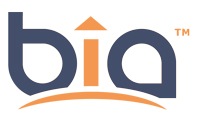
Overview
Projects today are challenged to manage within very tight budget and time constraints yet must meet and exceed customer expectations. Organizations can no longer manage projects using the same methodologies they applied 10 years ago. To ensure they can overcome project challenges and accelerate their success, they must re-think their approach to project management.
Projects span every department in organizations including IT, manufacturing, finance, human resources, and so on. One project is often a part of a larger program. New Product Development, Software Development and other types of projects will benefit through a Hybrid approach. That is by combining the Waterfall and Agile methodologies. Project management training that focuses on these global best practices and methodologies provides a high return on investment for organizations wanting to increase their project’s effectiveness and efficiency. It ensures that all business and customer requirements are successfully met.
Session Focus
You will experience how to manage an entire project from beginning to end using a real-life simulation which will include creating your project team, developing your project’s scope, plan, risk assessment and change requirements. This will lead you to the Agile Release Planning process where you’ll learn and apply the agile framework to selected portions of the project plan to create your product backlog and sprint backlogs. You’ll create your scrum team, identify the scrum master, product owner and sprint team and engage in real-life sprint meetings including the daily stand-up meeting, sprint review meeting, retrospective meeting and so on. This session will increase your skills, knowledge and experience in managing your projects successfully.
Who Should Attend?
Individuals who manage and/or participate in projects including: IT, Product Development, Marketing, Logistics and other types of projects. Roles include:
- Project Manager or Program Manager
- Project Leader
- Project Team Member
Key Outcomes
- Learn all of the stages of project management from beginning to end.
- Apply the Project Life Cycle from project definition to close.
- Develop the project scope statement.
- Understand the roles and responsibilities of project team members.
- Identify the project’s stakeholders and maintain a customer and quality focus throughout.
- Develop the work breakdown structures through Waterfall.
- Estimate the duration for all project activities and tasks.
- Determine the resources, both internally and externally, required to complete or ensure each task is completed.
- Identify all project task dependencies.
- Determine the project milestones.
- Identify and manage the critical path of the project.
- Assess project risk and identify mitigation and contingency plans
- Manage project changes throughout the project
- Review the project plan and identify those tasks required to complete the entire scrum.
- Hold an Agile Release Planning meeting to identify which project plan deliverables should be applied to the Agile process.
- Identify the project plan tasks required to create a Product Backlog
- Create the Sprint Backlog from these identified tasks.
- Determine the Agile Scum Roles including Scrum Master, Product Owner and Sprint Team.
- Identify how many iterations (sprint meetings) will be required.
- Manage the agile (sprint) meetings.
- Organize the daily scrum meetings.
- Complete a Sprint Review.
- Hold a Retrospective Meeting.
- Present and report to management on the project’s progress.
- Implement the project plan successfully.
- Close and evaluate the project upon completion.
- Manage the project close-out meeting.
- Archive and retain project knowledge as part of lessons learned.
Course Duration
3 Days

